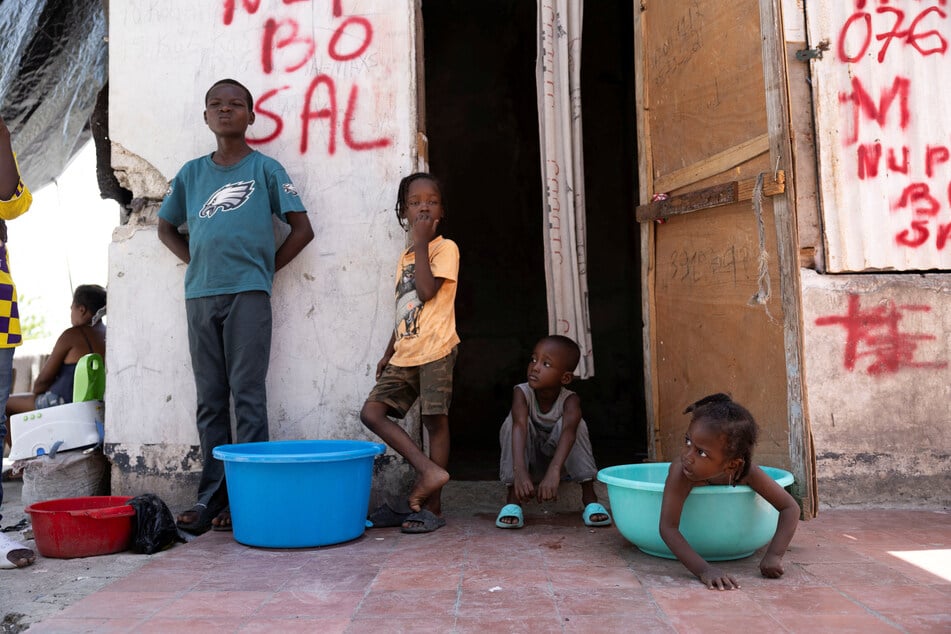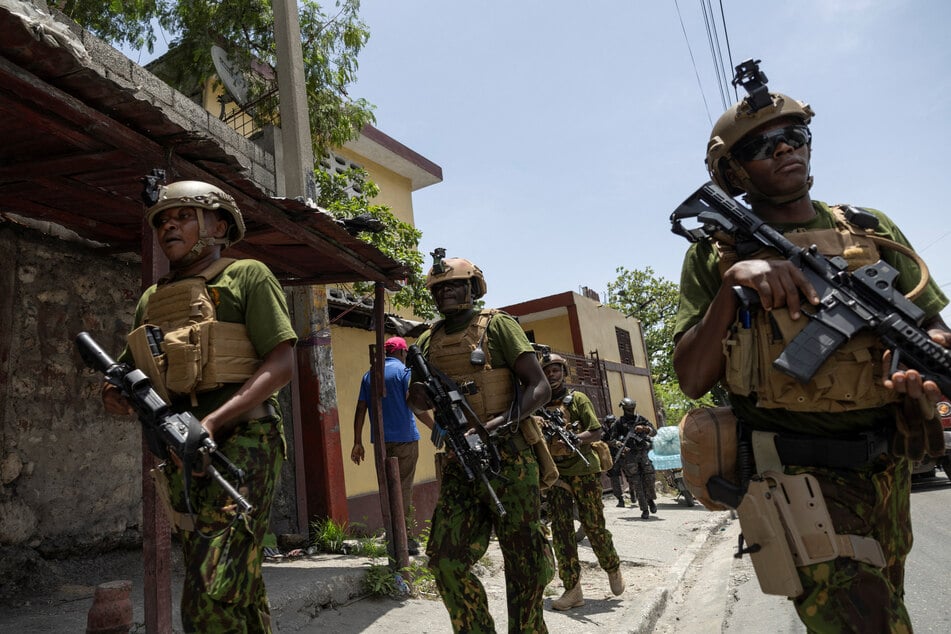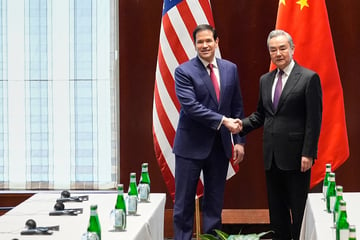Haiti's rampant gang violence is displacing one child every minute, UNICEF reports
Port-au-Prince, Haiti - Violence raging in Haiti is forcibly displacing one child every minute, on average, with some 300,000 already affected, the United Nations children's agency warned on Monday.

Displaced children account for more than half of the 600,000 people who have been forced to flee their homes due to violence, according to UNICEF, particularly in the capital Port-au-Prince, much of which is controlled by gangs.
"The number of internally displaced children in Haiti has increased by an estimated 60 percent since March – the equivalent of one child every minute – a result of ongoing violence caused by armed groups," it said in a report.
Haiti has long been rocked by gang violence, but conditions sharply worsened at the end of February when armed groups launched coordinated attacks in Port-au-Prince, saying they wanted to overthrow then-prime minister Ariel Henry.
"Children in Haiti continue to endure an onslaught of multiple dangers, including horrific violence and critical levels of displacement," said UNICEF executive director Catherine Russell.
"The humanitarian catastrophe unfolding before our eyes is taking a devastating toll on children. Displaced children are in desperate need of a safe and protective environment, and increased support and funding from the international community."
When displaced children and teenagers are forced to move – often without their families – it puts them at risk of dropping out of school and making them vulnerable to sexual assault, exploitation, and abuse.
Additionally, young people are increasingly joining the armed groups that sow terror in a country where 90% of the population lives in poverty, and three million children need humanitarian aid, UNICEF warned.
Kenyan police arrive in Haiti for Western-backed mission

Kenyan police arrived in Haiti last month on an international mission with the stated aim of helping to stabilize the Caribbean nation.
The violence in Port-au-Prince has affected food security and humanitarian aid access, with much of the city in the hands of gangs accused of abuses including murder, rape, looting, and kidnappings.
The multinational Kenyan force, greenlit last year by the UN Security Council, had been held up for months amid challenges to its deployment in Kenyan courts.
Others have objected to the Kenyan troops' mission as the latest episode in a long history of Western-backed interventions – a legacy which has wrought enormous havoc on the nation, known as the first Black Republic.
Advocates have called on the UN to support the Haitian people by backing calls for reparations for generations of enslavement and colonial abuse by Western powers.
Cover photo: REUTERS

